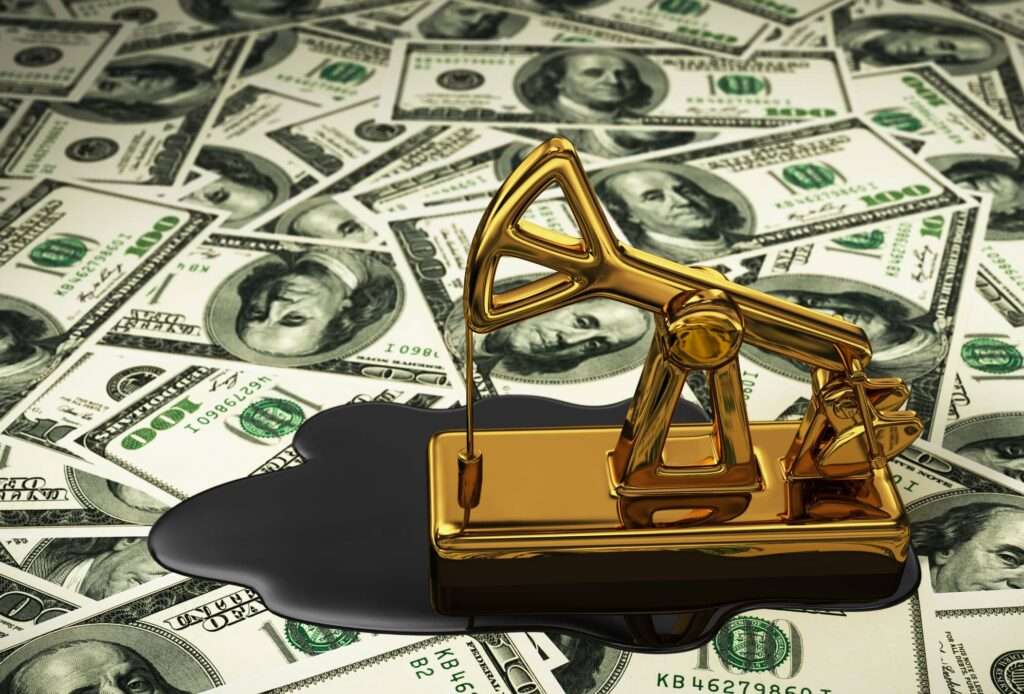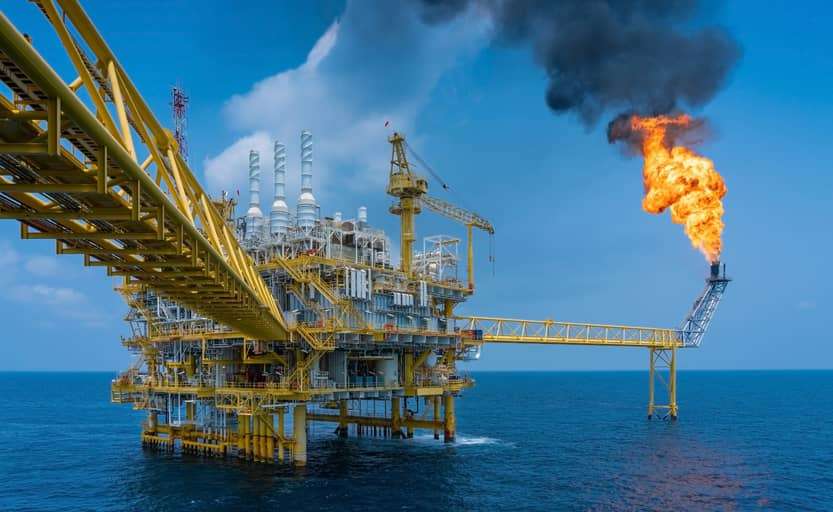Despite an expected windfall gain from the sale of crude this year, projected at US$550 million at an average price of US$85-US$90 per barrel, the government is likely to struggle to close in on its fiscal deficit, forecast to reach 7.4 per cent of GDP.
Oil prices have regained momentum, reversing declines experienced over the week, and gaining more than US$10/bbl this week after falling to $98/bbl, now selling at around US$109/bbl at the start of trading today, March 18, 2022. Analysts attribute this situation to the breakdown in recent Russia-Ukraine negotiations.
Ordinarily, it is expected that these gains made on the upstream side would be leveraged as support for the budget, and just as fair, these gains will therefore increase total government revenues. However, the extent of support will not be enough to cushion the budget, as seen in the past year. It’s not all rosy.
For instance, last year, the government run a budget deficit, despite experiencing windfall gains from crude sales when the benchmark crude price for 2021 was around US$54/bbl, the crude price reached about $90/bbl in the course of the year. Even so, the government was able to accumulate only 88.4% of projected oil revenues.
Mr Alex Mould, former CEO of GNPC is cited to have said in an interview that:
“…If you look at the windfall, and we should understand that government will be getting windfall, because government has only budgeted for $61 and so my calculation based on that shows us that based on 59 million barrels of crude oil, Ghana gets about 20% of the total crude oil and it is split between royalties and also something we call the CAPI. And CAPI is basically the Carried and Participatory Interest and then we have taxes.
“We’re looking at an increase in royalties from this $20 increase for about $68million with regards to our equity contribution, we are looking at about $250million… with regards to taxes, this is from the windfall that will come, we’ll derive [from being] partners of the Tullows, the ENIs we’re looking at about $235million.”
Alex Mould

Any Incremental Amount to be used to cushion the budget
This year, the government expects to make an estimated US$1,006.1 million as petroleum receipts, consisting of Royalties of US$206.5 million, Carried and Participating Interest of US$537.6 million, Corporate Income Tax of US$261.1 million and Surface Rentals of US$0.92 million.
This notwithstanding, these projected amounts are also subject to whether or not total output produced at the end of the year will meet the projected output of 59.51 million barrels, equivalent to 163,044 barrels per day.
In the previous year, the projected crude output was not achieved (benchmark crude output- 64.86 million barrels). This was due to aging wells in some of the country’s oil fields, and the disruption of the work plan of oil operations due to the impact of the COVID-19 pandemic, which still continues to hinder oil producing activities to some extent.
Hon. Andrew Egyapa Mercer, the deputy minister for Energy is cited to have said:
“…You [government] are already running a deficit budget such that even the non-passage or the delay in the passage of the E-levy is creating problems by itself, and so, any incremental amount of money that comes to government can only go to reduce the burden that already exists or the hole that already exists that government is struggling to fill.”
Andrew Egyapa Mercer
Besides, by accumulating around US$550 million as added oil revenues into the petroleum holding fund (PHF), only 70% of this amount (US$385million) is dedicated to the Annual Budget Funding Amount (ABFA) while 21% of the amount (US$115.5million) goes to the Ghana Stabilization Fund (GSF) and 9% (US$49.5million) to the Ghana Heritage Fund, according to the Petroleum Revenue Management Act, Act 2011 (Act 815).
With reference to the 2022 budget, the government projected a total spending amount of GHS135.6 billion, matched with a projected revenue of GHS100.5 billion. Albeit, the government is already facing several pitfalls in raising the needed revenue to finance its budgeted expenditures, including: delayed parliamentary approval of the E-levy and the government’s lack of access to the international capital market.
Furthermore, the Russia-Ukraine crisis is disrupting trade between Ghana and both countries which is likely to affect Ghana’s export revenues in the goods traded, shrinking projected revenues as a result. Of all the products exported from Ghana to Russia, cocoa and cocoa preparations ranked highest, increasing by 7 per cent per annum between 2016 and 2020 and makes up 6 per cent of the shares of Russia’s imports.
The most exported product from Ghana to Ukraine are a category of ores, slag and ash, increasing by 25 per cent per annum between 2016 and 2020, and also makes up 25 per cent of the shares of Ukraine imports, followed by cocoa and cocoa preparations which makes up 9 per cent of shares of Ukraine imports.

Govt’s fiscal space very narrow
The E-levy is already lagging behind by a month, since the effective date was on February 2022. This obviously means that should it be passed in the next month, the expected total revenue of GHS6.97 billion to be accrued from the levy would fall short.
More so, being locked out of the international bond market means that, the deficit of 7.4% may be unachievable. Fundamentally, Fitch Ratings, in its latest rating cancelled any possibility of Ghana being able to issue on international capital markets this year, “and prospects for doing so in 2023 are uncertain,” noting that “Ghana’s international reserve position has become highly reliant on annual Eurobond issuance”.
Guided by these complexities, the ratings agency forecast the general government fiscal cash deficit to narrow to 9.1% of GDP in 2022 from an actual 12.1% in 2021 (including 3% of GDP in domestic arrears clearance and payments related to the state-owned energy sector).
The country is indeed, facing a lot of challenges- the government’s fiscal space is narrowing. As a result, it seeks to get on track with the success of the passage of the E-levy or else, consider financing support from the IMF. The truth is, the deficit may be larger than projected, despite the windfall gains anticipated at end-year.
READ ALSO: Split Proposed Rate of E-levy Between Consumers and Telcos, IEA Urges Gov’t




















